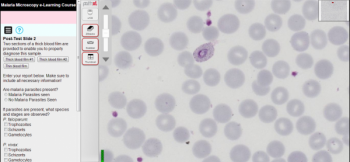Publication
Improving Lateral Flow Assay Performance Using Computational Modeling.
Published Online: June 12, 2018
Published Online: June 12, 2018
Summary/Abstract
The performance, field utility, and low cost of lateral flow assays (LFAs) have driven a tremendous shift in global health care practices by enabling diagnostic testing in previously unserved settings. This success has motivated the continued improvement of LFAs through increasingly sophisticated materials and reagents. However, our mechanistic understanding of the underlying processes that drive the informed design of these systems has not received commensurate attention. Here, we review the principles underpinning LFAs and the historical evolution of theory to predict their performance. As this theory is integrated into computational models and becomes testable, the criteria for quantifying performance and validating predictive power are critical. The integration of computational design with LFA development offers a promising and coherent framework to choose from an increasing number of novel materials, techniques, and reagents to deliver the low-cost, high-fidelity assays of the future.
Read PublicationAuthors
Gasperino D, Baughman T, Hsieh HV, Bell D, Weigl BH

The World Health Organization-approved eLearning tool can be used regardless of Internet access.
Read More
Is artificial intelligence (AI) a boon or bane for humanity? Our founder and CEO Nathan Myhrvold delivered the World Traders 2018 Tacitus Lecture to discuss this fear, which he calls the “innovation menace.”
Read More